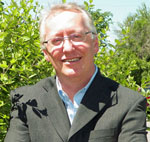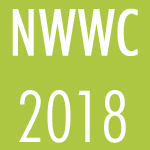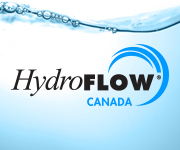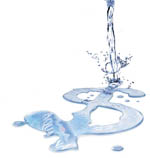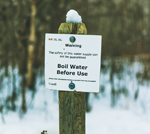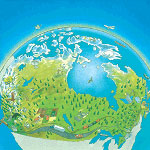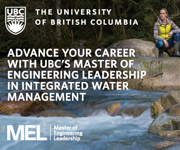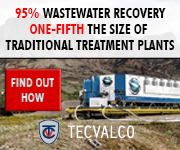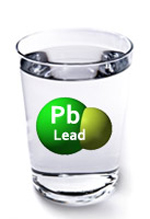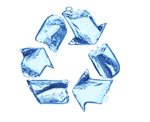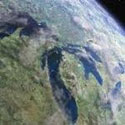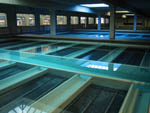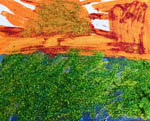| January 26, 2018
|
In This Issue |
|
CWWA News
|
|
|
Member News
|
|
|
Federal Initiatives
|
|
|
National News
|
|
|
Provincial News
|
|
|
International News
|
|
|
Research News
|
|
|
Standards News
|
|
|
Upcoming Events
|
|
|
Snippings and Clippings
|
|
I’ll start with a Happy New Year and an apology for anyone that’s been trying to reach us. We shut down the headquarters here in Ottawa in December to address some serious water damage. It was a bigger job than we expected (it always is) and it meant moving our server out of the office and efforts to all work remote. This went fairly well, but I know we missed a lot of calls and our emails weren’t always working either.
|
The Call for presentations is now open for the 2018 National Water and Wastewater Conference from November 4-7, 2018 in Montreal, Quebec.
|
Don't forget to take a picture of you wearing your CWWA toque wherever life takes you. In the meantime, here are some of the places CWWA has been spotted!
|
The Window on Ottawa is CWWA's core event featuring presentations and panel discussions on federal and national policies from the federal departments and national organizations making policy decisions. Save the Date: June 5-6, 2018
|
Nominate Today! Get your Water’s Next nominations in for leading water people, technologies, and projects! The Water’s Next national awards program honours the achievements and ideas of individuals and companies that successfully work to change water in our country.
|
FluksAqua teamed up with the city of London on a program to help municipalities raise awareness about FOG problems in sewers, and to also offer an easy solution. They’re providing residents with a new biodegradable cup, that won't melt when pouring hot oil in it. Using these handy biodegradable cups, residents are encouraged and empowered to dispose of their fats, oils and grease (FOG) and prevent them from ending up down their sink and toilet drains. Together, let’s eliminate pipe FOG. Get with the Your Turn program! This project was started by the City of London but they are now ready to share this easy solution with other Canadian municipalities. Enroll in the YOUR TURN PROGRAM powered by FluksAqua.
|
The California Environmental Protection Agency (CalEPA) will be presenting Lystek International Ltd. (Lystek) with a Governor’s Environmental and Economic Leadership Award (GEELA) at a special award ceremony held at EPA’s headquarters in Sacramento, California.
|
In the winter of 2018 Statistics Canada will be conducting the Survey of Drinking Water Plants. This survey is a census of public drinking water plants serving communities of 300 or more people. The survey results produce a national portrait of potable water production, treatment processes and costs.
|
The Canadian Council of Ministers of the Environment (CCME) has posted the Water Quality Index 2.0 application and CCME Water Quality Index User’s Manual 2017 Update, replacing the Water Quality Index 1.2 published in 2011. The revised and updated index provides a consistent approach to summarizing complex water quality data and facilitating its communication. The user’s manual provides guidance on key calculations and application of the index as well as examples of its use.
|
In December Amarjeet Sohi, Minister of Infrastructure and Communities, and Jenny Gerbasi, president of the Federation of Canadian Municipalities (FCM) announced funding for 72 initiatives in communities across Canada through three funding programs: the Municipalities for Climate Innovation Program (MCIP), the Municipal Asset Management Program (MAMP), and the Green Municipal Fund (GMF). Funding allocated for national water projects will be used to improve water systems, plan for drought and disasters, and watershed management plans, among other things.
|
Water Canada The Parliamentary Budget Officer, Jean-Denis Fréchette, released a report today analyzing federal spending on drinking water and wastewater treatment on First Nations reserves. In it, he suggests that the current government is grossly under-budget to meet the 2015 promise to end long-term boil water advisories on reserves within five years.
|
Water Canada As First Nations are more actively deploying their own governance locally, regionally, and nationally, a growing body of Canadian leaders are advocating for the federal government to get out of the way. This is equally true when it comes to clean water.
|
The 2017 Annual Report of the Auditor General of Ontario, made public on December 6, 2017, contains scathing criticism of the province’s Emergency Management regime.
|
The U.S. Environmental Protection Agency on Monday initiated a 60-day federalism consultation on the Lead and Copper Rule with state and local government representatives, including AWWA. The purpose of the federalism consultation is to give state and local governments a chance to provide input on the anticipated rulemaking and offer observations on effectiveness and impacts. The consultation will feed into Administrator Scott Pruitt’s consideration of the proposed rule, which EPA’s regulatory calendar indicates will be published in August 2018. Questions about the process and AWWA’s participation can be directed to Steve Via in AWWA’s Government Affairs Office.
|
The EPA has announced the release of the 2017 Potable Reuse Compendium. This document supplements the 2012 Guidelines for Water Reuse and provides a current look at potable water reuse practices, including direct potable reuse.
|
In its first checkup report since both Canada and the US last updated the Great Lakes Water Quality Agreement in 2012, the International Joint Commission said that inadequately treated sewage, industrial chemicals and farm runoff are still flowing into the five lakes that provide drinking water for about 40 million people. The IJC report calls for improving drinking water and sewage treatment facilities, and strengthening clean-water regulations, particularly limits on phosphorus runoff. Agencies also should work faster to identify newer types of contamination, such as fire retardant chemicals, and develop strategies for limiting them, the report says.
|
A new study "Biodegradable organic matter and rapid-rate biofilter performance: A review" has just been published in the journal Water Research.
|
ISO TC282 is under development. This Standard will focus on the standardisation of water reuse of any kind and for any purpose. A website for the technical committee is under development. To promote the vision the group is launching a contest for "Water Seen by the Children", winning submissions of either art work or photos will be published on the TC website each month. Canada is invited to submit artwork by February 14, 2018.
|
The Standards Council of Canada (SCC) is seeking feedback from relevant stakeholders on the International Organization for Standardization’s (ISO’s) new work item proposal for the development of a new standard on community-scale resource-oriented sanitation treatment systems. All responses submitted to SCC will serve to generate a Canadian position on the proposal.
|
Browse our calendar of CWWA member and partner events.
|
Global News First it was charcoal-infused juice, then it was unpasteurized milk, now health fanatics are jumping on the "raw" water bandwagon and it has experts worried. Raw water refers to unfiltered, untreated and unsterilized water that’s collected from a spring or the atmosphere, and proponents believe it’s healthier than tap or bottled water.
|
Water Canada Ontario has announced the first recipients of TargetGHG—a program that helps companies adopt leading-edge technologies in order to reduce greenhouse gas emissions while supporting entrepreneurs. One of the collaborative projects will target emissions from the water and wastewater sector.
|
IWA Source The Australian Competition and Consumer Commission (ACCC) has begun court proceedings against Kimberly-Clark and Pental alleging that they each made false or misleading representations in relation to ‘flushable’ wipes which they marketed and supplied in Australia.
|
CBC News A plan first hatched in London to help stop the formation of disgusting, sewer-clogging "fatbergs" is now being used in other cities. Ten years ago, the city of London was spending about $100,000 a year to clear large blobs of grease from city sewers. These masses of fat — called fatbergs — form when grease is dumped down toilets or drains. See the related article: FluksAqua YOURTURN Program
|
Water Canada Much of Canada’s water infrastructure has been in place for many years. Infrastructure designs and associated procurement processes are based on existing climate patterns. With the effects of a changing climate, there is recognition that these designs need to be revisited to improve resiliency, safety, and protection for Canadians. Accordingly, procurement processes must be adapted to facilitate the needs of the future.
|
Water Canada Canada and British Columbia announced the first annual progress report on the implementation of the Pan-Canadian Framework on Clean Growth and Climate Change, the first pan-Canadian plan to address climate change, which highlighted national work on floodplain mapping
|
Water Online As an advocate for the air, water, and economic benefits that clean energy provides, I find some of my most challenging — and maybe most rewarding — work is trying to engage climate-skeptic lawmakers at the Texas Capitol in Austin.
|
Following EPA’s rejection of a petition seeking a ban on fluoridation under the Toxic Substances Control Act last fall, advocacy groups filed legal action in the 9th Circuit U.S. District Court challenging the decision (Food & Water Watch Inc., et al, v. EPA). For policy wonks, the current litigation is not about fluoridation per se, but about the burden EPA can place on TSCA petitioners and EPA’s authority to target the application of TSCA to specific uses.
|
|
| |
|




